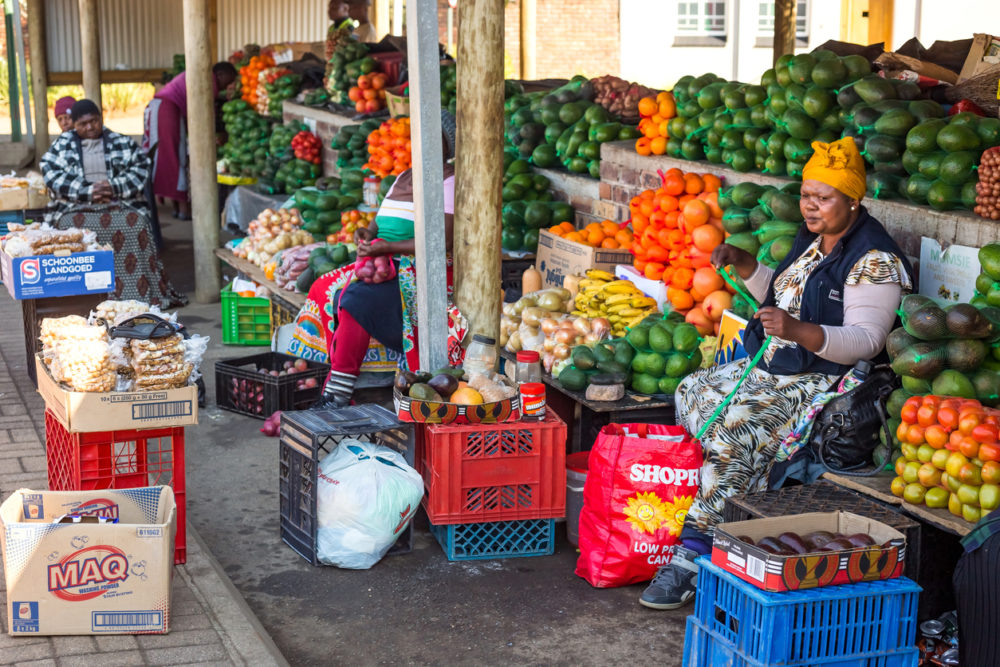Kenyan B2B agritech startup Taimba is out to help smallholder farmers find markets for their produce by connecting them directly to retailers. It sources fresh agricultural produce with short shelf lives, from rural farmers who often lack proper storage methods, and delivers them to a range of small-scale retailers in Kenya’s capital, Nairobi.
Dominique Kavuisya, CEO and founder of Taimba, created the platform after identifying how much food was wasted in rural parts of the country due to poor food preservation methods and a lack of ready markets around harvest time.
Middlemen and low productivity
Food wastage aside, the smallholders were at the mercy of middlemen who undercut them on pricing for their produce.
“In between [farmers and retailers], you’re looking at five brokers or even more sometimes. There’s a broker who goes to buy from the farmer. Then there’s one who provides the transport. Then, to sell to local markets, there’s a fee one has to pay,” Kavuisya tells AFN.
In turn, end consumers in urban centers have to bear high food costs, while farmers receive meager, delayed payments.
Kavuisya wanted to create a platform that could link rural farmers more directly with buyers, shortening the agricultural supply chain by eliminating these middlemen. And Taimba automates, streamlines, and makes trading transparent so that farmers can follow up on their sales via the mobile app.
“The opportunity was that if you leverage technology in the food supply chain, you’re able to provide a platform that ensures transparency and empowers farmers so that they do not need to worry about where they’re going to sell their produce,” Kavuisya says.
Retailer inconvenience
On the other side of the chain, he observed the inconvenience faced by retailers such as greengrocers, supermarkets, and restaurants, who often have to pick up produce in the early hours of the morning at somewhat high transportation costs considering most of them are informal traders.
So Taimba took up logistics, which now integrates cold chain storage following its raise in 2020, to provide free transportation through third parties for the retailers. They can then conveniently get their produce within 24 hours after ordering via Taimba’s mobile-based app.
On the other hand, the farmers based in rural parts of the country such as the Eastern and Mount Kenya regions have access to guaranteed buyers on the platform. Their produce, which could be tomatoes, onions or potatoes, is aggregated through farmer cooperatives to be sold to the retailers. They get paid on the same day the produce is collected, unlike most situations where they had to deal with delays from middlemen.
“For a farmer to scale up their production, you have to give them a formal market and pay them on time; with brokers, they don’t get this,” Kavuisya notes.
Taimba generates revenue by adding a markup to the produce.
Meeting the tech challenge
When working with rural smallholders, technology can often be a barrier due to low internet penetration in those areas and high data costs.
“We had to think about a solution that allows us to prove the model to the farmers and to other stakeholders in the value chain,” says Kavuisya. That solution relies on relationships with cooperatives whose staff members will usually have mobile phones and can help to onboard farmers within their networks.
With its expansion to Tanzania and Uganda, Taimba is also rolling out a light app that doesn’t use much data or take up a lot of storage on a very basic smartphone.
“As we scale we have to think about the micro traders, their motivations, and how we can ensure that we meet their needs,“ says Kavuisya.
From transportation to cold chain to fintech
As with many African agrifoodtech startups, Taimba is also working on embedding a fintech solution that will extend credit to retailers since most of the time they need goods in bulk but do not have enough cash upfront. It will use the retailers’ purchase data on the platform to determine loan amounts, which would be around $250 or less for these small-scale retailers.
Farmers will not be left out as Taimba is in talks with partners such as Mastercard and Kenya Commercial Bank (KCB) to deploy capital to small-scale farmers through alternative lending models leveraging Taimba’s data.
“Banks have the same assumptions about lending to farmers and still apply the same policies in lending like needing farmers to have bank statements for the last six months or two years, which doesn’t make sense for rural farmers given most of them don’t have bank accounts,” he notes.
In the works is the introduction of input providers on the platform to help farmers access them easier and negotiate cheaper input prices through aggregating demand.
By the numbers
2,500: farmers on the platform.
25: farmer cooperatives on the platform.
90%: buyers are informal small-scale grocers
1,000: small-scale grocers, of which 85% are female traders; and
10% buyers are schools and hospitals.
2%: food waste levels, down from 50% on the back of Taimba interventions, according to Kavuisiya.
3.5 hours daily: how much time retailers are able to save through Taimba’s transportation solution.
$2-$3: how much retailers are saving on logistics.
60%: how much farmers’ incomes increase, according to Taimba.
So far, the agritech has secured seed, equity, and grant financing to the tune of $823,000 in total, with support coming from Enviu, DOEN Foundation and US impact investor Gray Matters Capital’s coLABS.





